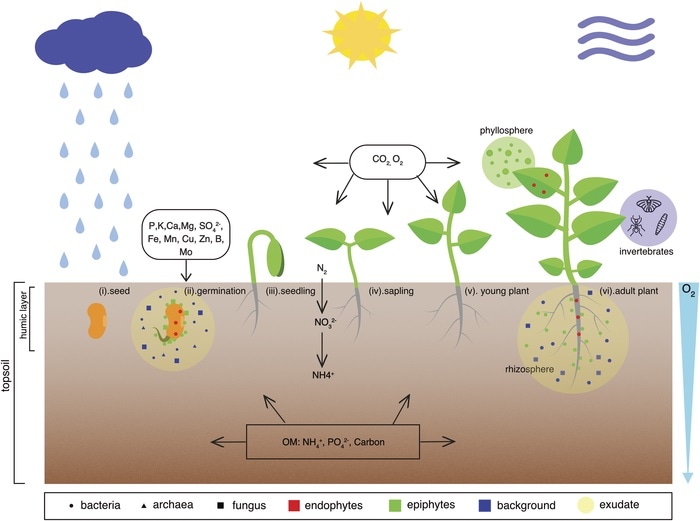Technology is quickly advancing across various disciplines. Progressive results are often achieved when new technology allows novel approaches or when technologies are passed from other fields of research. The current review article by Dr. Esther Singer and co-workers investigated new and developing technologies in connection to plant microbiome studies.

Overview of abiotic and biotic factors affecting plant, microbiome, and overall soil health. Image Credit: Esther Singer, John P. Vogel, Trent Northen, Christopher J. Mungall, and Thomas E. Juenger.
Plant root microbiome research has the potential to play an enormous role in improving food and energy security. With the onset of new technologies to collect and process data, we hope to further disclose the drivers and complex underground interactions that determine the health of entire soil ecosystems. Healthy soils make healthy humans.”
Esther Singer, Study Lead Author and Scientist, Joint Genome Institute
Esther Singer is the principal investigator at the Lawrence Berkley National Laboratory in Berkley, California.
Singer and her co-workers elaborate on how exciting new technologies can be employed in plant microbiome research to create greater knowledge of soil ecosystem health and climate research.
For instance, researchers can integrate mesocosms (controlled enclosures that attempt to link the gap between the lab and the real world) with in situ sensors and imaging tools that gather soil and plant trait information. The controlled nature of this platform enables replicable experimentation on appropriate spatial and temporal scales.
“Another example is the use of novel computational data processing and analysis methods that can facilitate the identification of underlying drivers and interactions when complex and multi-disciplinary datasets are collected,” added Singer.
The availability and development of novel and emerging technologies in plant root microbiome research will make impacts in a number of fields, including agriculture, climate change research and mitigation, environmental conservation, and bioremediation. The strength of applying these tools will lie in their combined and integrated use.”
Esther Singer, Study Lead Author and Scientist, Joint Genome Institute
The review article details the strengths and limitations of various new and advancing technologies, including robotics, imaging tools, molecular analyses, experimental platforms from micro- to mesocosms, and data integration, modeling, and prediction tools.
The review intends to provide scientists an overview of the advancing instrumentation and techniques and incite discussion and generate ideas on how to incorporate these into their future research to create a sustainable place.
Source:
Journal reference:
Singer, E., et al. (2021) Novel and Emerging Capabilities that Can Provide a Holistic Understanding of the Plant Root Microbiome. Phytobiomes Journal. doi.org/10.1094/PBIOMES-05-20-0042-RVW.